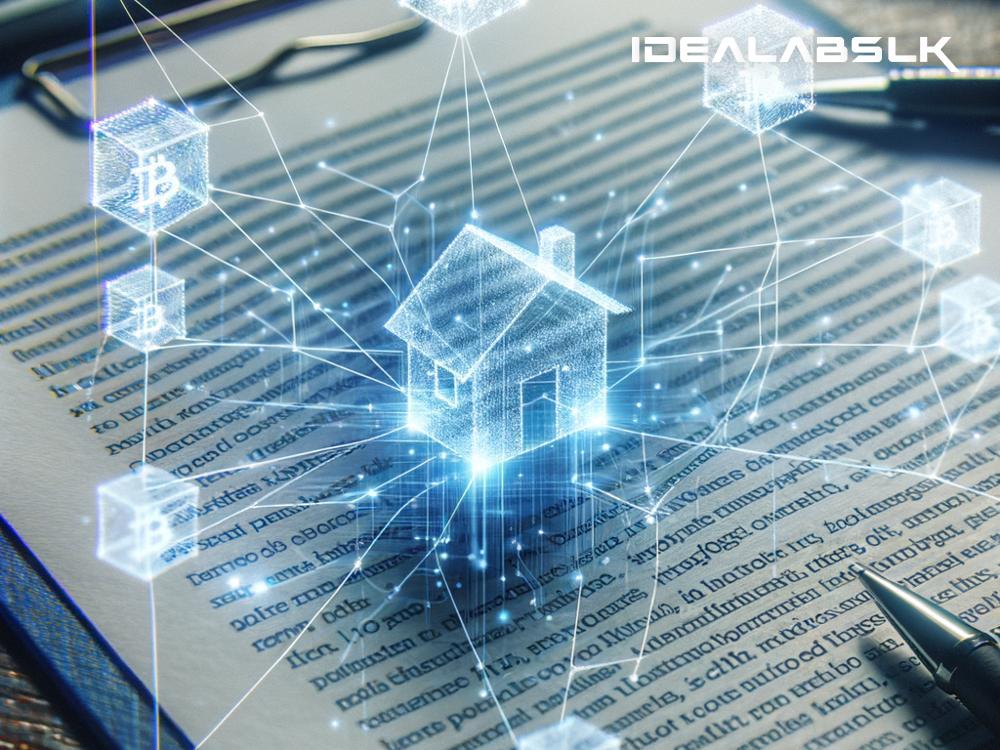Blockchain: A Game-Changer for Property Ownership Security
In recent years, blockchain technology has stormed into various sectors, revolutionizing how transactions and data management are approached. Its impact on the world of property ownership is particularly noteworthy, promising to enhance security, transparency, and efficiency. But what exactly is blockchain, and how can it transform property ownership security? Let's break it down in simple terms.
What is Blockchain?
Imagine a digital ledger, similar to a traditional ledger used to record transactions. However, instead of being stored in one place, this ledger is duplicated across a network of computers. This means every time a new transaction occurs, it's recorded on every copy of the ledger. This method is what we call blockchain technology.
The magic of blockchain lies in its decentralization and transparency. Because the ledger is not stored in one location but across many, it is significantly harder for hackers to compromise it. Moreover, every transaction is visible to all participants, making any attempt at fraud easily detectable.
Blockchain and Property Ownership: A Perfect Match
Property ownership involves various stakeholders, including buyers, sellers, lawyers, and government entities. Traditionally, this process is bogged down by paperwork, prone to human error, and vulnerable to fraud. Enter blockchain, and this narrative changes dramatically.
-
Enhanced Security: Blockchain's decentralized nature makes it an incredibly secure method for recording property transactions. Since every transaction is permanently recorded across multiple locations in the network, altering, deleting, or forging transactions becomes nearly impossible. This level of security is a game-changer for property ownership, where fraudulent activities such as title fraud can cost individuals and businesses millions of dollars.
-
Transparency and Trust: With blockchain, every transaction, including the transfer of property ownership, is transparent and visible to all parties involved. This visibility fosters trust among parties, as there is an immutable record of every action taken. If there are disputes, the blockchain serves as an indisputable source of truth since transactions cannot be altered once recorded.
-
Efficiency and Speed: Property transactions often get delayed due to the lengthy processes of verification and paperwork. Blockchain, however, can streamline these procedures significantly. By using smart contracts — self-executing contracts with the terms of the agreement directly written into code — transactions can be completed automatically once conditions are met. This technology can drastically reduce the time it takes to buy or sell a property, from months to just days or even hours.
-
Reduced Costs: The traditional process of buying or selling property involves various fees, including legal costs, registration fees, and taxes. Blockchain can lessen these expenses by automating many steps that currently require manual intervention and verification. By cutting out the middlemen and reducing the need for extensive paperwork, blockchain can make property transactions more cost-effective for everyone involved.
Implementing Blockchain in Property Ownership
While the benefits are clear, implementing blockchain in property ownership is not without its challenges. For one, there is a significant need for legal and regulatory frameworks that accommodate blockchain transactions. Additionally, stakeholders must be willing to adopt and adapt to this new technology, requiring a shift in mindset and possibly significant upfront investment in technology and training.
Despite these hurdles, some countries and companies are forging ahead. For example, countries like Sweden and Georgia have begun experimenting with blockchain for land registry purposes. Similarly, startups and established companies in the real estate sector are exploring blockchain to streamline their operations and offer better security to their clients.
The Future of Property Ownership
The potential of blockchain to transform property ownership is immense. As the technology matures and more stakeholders recognize its benefits, we can expect to see wider adoption across the globe. This shift will not happen overnight, but the promise of a more secure, transparent, and efficient system for property transactions is too compelling to ignore.
In conclusion, while blockchain technology is still in its relative infancy in the realm of property ownership, its adoption could lead to unprecedented levels of security and efficiency. By demystifying and discussing blockchain in simple terms, we hope to foster a better understanding and encourage more stakeholders to explore this transformative technology. The future of property ownership, powered by blockchain, promises to be not just secure, but also more equitable and accessible for all.

